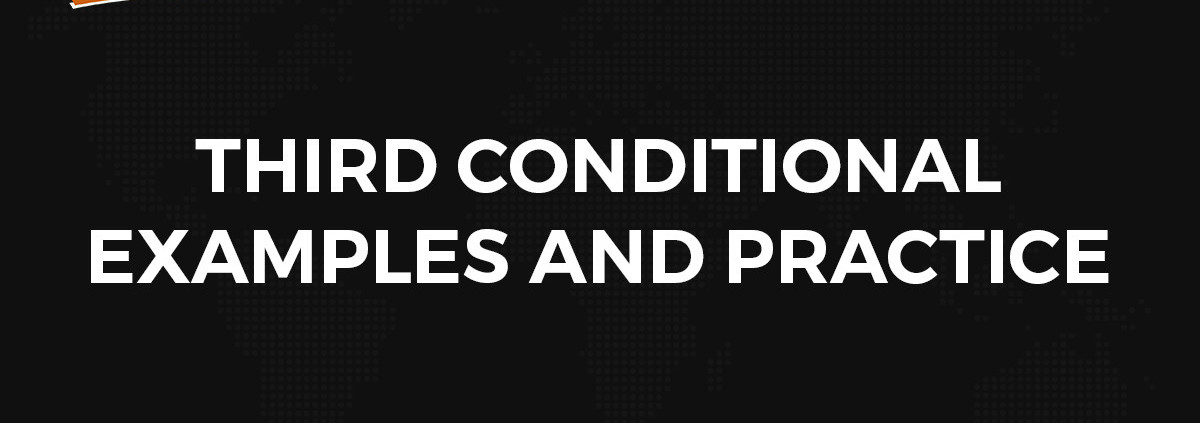In this video lesson, you’re going to learn how to use the third conditional and see plenty of example sentences so that you can better understand how to use it.
You’re also going to see how it compares to the second conditional and other modal verbs we can use.
Be sure to answer the question I ask at the end!
Share the video with your friends, and then read the article below.
Third Conditional: How to Use it & Example Sentences
In the example I gave, I said the following:
“If that guy had given me the correct directions, then I wouldn’t have met my wife.”
(Note: the clip was taken from this video.)
We use the third conditional to talk about hypothetical or unreal situations in the past.
The guy didn’t give me the correct directions and I did meet my wife. The third conditional allows us to talk about different past actions (unreal) and how they would affect the past.
It’s a fun conditional to use!
Here are more examples:
- I would have gone if you had told me (you didn’t tell me and I didn’t go because of this)
- If I had more time*, I would have finished it (I didn’t have enough time, therefore, I didn’t finish it)
- I would have been so angry if he had said that to me
* Notice that I used I had and not I had had. In this case, it usually shortens to the past simple. But you might see had had in written English.
More examples:
- If I had known you had a course, I would have bought it
- If they hadn’t come, I would have been disappointed
- She would have been sorry if she had missed it
Using Could instead of Would
When we use could have instead of would have, this suggests probability instead of something definitive.
Look at these two examples:
- I would have gone if you had told me
- I could have gone if you had told me
The first one is definite. If you had told me, I definitely would have gone.
The second one introduces probability or possibility.
Here is a video on this (with should have too!):
The Difference Between the Second and Third Conditionals
In the second conditional, we are talking about hypothetical situations in the present.
Here is an example of the second conditional:
- If I had more money, I would buy that fancy car.
Using the third conditional for this sentence:
- If I had more money, I would have bought that fancy car
Do you see the difference? The third conditional talks about the same situation but in the past.
Here is another example:
- If I had more money, I would have that car now
This is a mixed conditional. Learn more about these here.
Third Conditional Exercise
Okay…
Now it’s time to test your knowledge of the third conditional here:
1: If you _________ me, I would have gone (to tell)
If you had told me, I would have gone
2: They ___________ it if they had known (would / to do)
They would have done it if they had known
3: If she ___________ so many classes, she would have passed (note / to miss)
If she hadn’t missed so many classes, she would have passed
4
If you had woken up earlier, we wouldn’t have missed the flight
5: We __________ if we had known about it (could / to go)
We could have gone if we had known about it.
What to Do Now:
Answer the following question: What would you have done in my situation? (I found $200 in a wallet).





Thank you for sharing.
Congratulations on your excellent classes.
Best wishes.
Thanks!